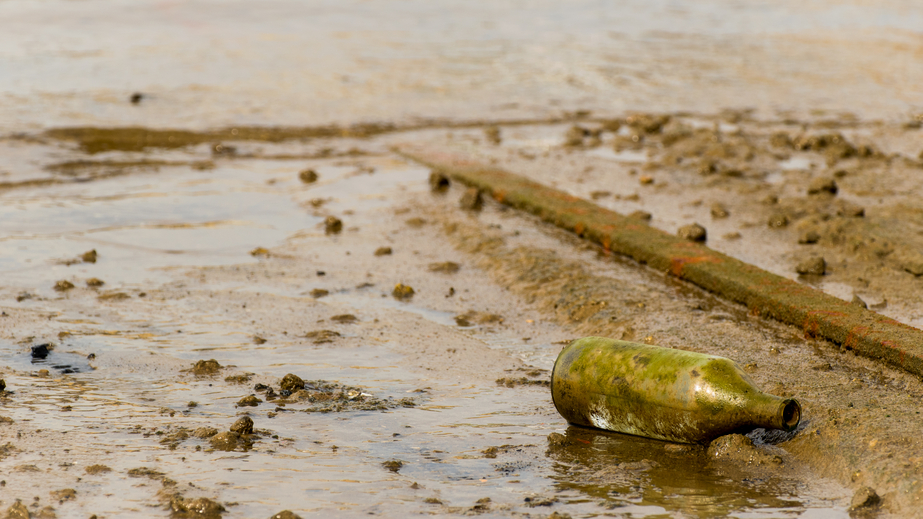District of Columbia Environmental and Ethics 20 PDH Discount Package 2
Reducing Lead in Drinking Water in Schools and Child Care Facilities (C07-014)
Identification and Selection of Remedial Action Alternatives (C08-002)
Code of Ethics for Engineers (LE1-001)

This online engineering PDH course presents guidelines for the remediation/clean-up of mold and moisture problems in schools and commercial buildings. These guidelines include measures designed to protect the health of building occupants and remediators. Individuals with little or no experience with mold remediation should be able to use this course to help them make a reasonable judgement as to whether the situation can be handled in-house. It will also help those in charge of maintenance to evaluate an in-house remediation plan submitted by an outside contractor.
Molds can be found almost anywhere. They can grow on virtually any organic substance if moisture and oxygen are present. There are molds that can grow on wood, paper, carpet, foods, and insulation. When excessive moisture accumulates in buildings or on building materials, mold growth will often occur, particularly if the moisture problem remains undiscovered or unaddressed. It is impossible to eliminate all mold and mold spores in the indoor environment. However, mold growth can be controlled indoors by controlling moisture indoors.
When mold growth occurs in buildings, adverse health problems may be reported by some building occupants, particularly those with allergies or respiratory problems. Remediators should avoid exposing themselves and others to mold-laden dusts as they conduct their cleanup activities. Caution should be used to prevent mold and mold spores from being dispersed throughout the air where they can be inhaled by building occupants.
This 4 PDH online course is intended to environmental and facility engineers, building managers, custodians, and others who are involved in the development and implementation of mold prevention and remediation plans.
This PE continuing education course is intended to provide you with the following specific knowledge and skills:
- Understanding mold preventative measures
- Investigating, evaluating, and remediating moisture and mold problems
- The importance of Personal Protective Equipment
- Developing a Mold Remediation Plan
Upon successful completion of the quiz, print your Certificate of Completion instantly. (Note: if you are paying by check or money order, you will be able to print it after we receive your payment.) For your convenience, we will also email it to you. Please note that you can log in to your account at any time to access and print your Certificate of Completion.

This online PDH course examines sources of lead contamination found in drinking water in schools and child care facilities. It features seven modules on how to enact a plan for testing, remediating, and communicating lead contamination in drinking water.
Lead had been widely used in plumbing in the U.S. until it was determined to be unsafe for human consumption. In children, lead exposure can cause reduced IQ and attention span, learning disabilities, poor classroom performance, hyperactivity, behavioral problems, impaired growth, and hearing loss. Thus, it is important to constantly test for, remediate, and communicate any lead contamination in drinking water.
This course maintains that the only way to know if there is lead in drinking water is testing. It provides information on likely sources of lead in a building’s plumbing system and how to sample different sources of drinking water. It also historically contextualizes the presence of lead in plumbing and subsequent phasing out after being determined unsafe for human consumption.
This 7 PDH online course is applicable to environmental, civil, and mechanical engineers as well as other technical personnel who are interested in learning more about eliminating lead sources from drinking water.
This PE continuing education course is intended to provide you with the following specific knowledge and skills:
- Understanding how to sample drinking water for lead and interpret the results
- Understanding the effects of lead exposure on the human body, particularly for children
- Learning about the historical context in which lead was used in plumbing in the U.S. and why it was phased out
- Learning how to develop and enact a plan to test for, remediate, and communicate any lead contamination in drinking water in schools and child care facilities
Upon successful completion of the quiz, print your Certificate of Completion instantly. (Note: if you are paying by check or money order, you will be able to print it after we receive your payment.) For your convenience, we will also email it to you. Please note that you can log in to your account at any time to access and print your Certificate of Completion.

This online engineering PDH course provides technical guidelines that will aid in the identification and selection of remedial actions at uncontrolled hazardous waste sites. It presents information on site-specific corrective measure alternatives including performance of preliminary assessments and site investigations to define the problem and determine its extent; remedial investigations and feasibility studies to develop options for remedial action; and selection of one or more cost-effective remedial actions in support of clean-up activities.
This 8 PDH online course is applicable to civil, environmental or geotechnical engineers, as well as design and construction personnel involved with hazardous and toxic waste remedial activities.
This PE continuing education course is intended to provide you with the following specific knowledge and skills:
- Determination of the nature and extent of contamination
- Establishment of clean-up criteria
- Development and screening of remedial action alternatives
- Detailed analysis of remedial action alternatives
In this professional engineering CEU course, you need to review Chapter 2 of the US Corps of Engineers Publication EM 1110-1-502, "Identification and Selection of Remedial Action/Corrective Measure Alternatives".
Upon successful completion of the quiz, print your Certificate of Completion instantly. (Note: if you are paying by check or money order, you will be able to print it after we receive your payment.) For your convenience, we will also email it to you. Please note that you can log in to your account at any time to access and print your Certificate of Completion.

This online engineering PDH course introduces engineers to the National Society of Professional Engineers Code of Ethics. The Code provides ethical guidance to engineers in their various and often simultaneously held roles as 1) guardians of public health, safety, and welfare 2) employees, 3) employers, and 4) providers of technical service to clients.
Engineers practicing their profession encounter not only technical issues but also ethical issues. Sometimes the latter issues are easy to resolve: applying everyday, common-sense notions of honesty, openness, responsibility, and lawfulness is sufficient to guide the engineer to the appropriate decision. At other times, however, matters are more complicated. In particular, knowing what to do when two or more duties or obligations conflict can be difficult. For example, an engineer's duty to his client or employer may conflict with the engineer's duty to the general public. Codes of ethics have been formulated to help engineers address these conflicts.
This 1 PDH online course is intended for all engineers who are interested in gaining a better understanding about how to protect and respect their engineering profession in the utmost manner.
This PE continuing education course is intended to provide you with the following specific knowledge and skills:
-
Learning the six Fundamental Canons of the Code
-
Learning the five Rules of Practice
-
Learning the nine Professional Obligations
-
Understanding the definition of "Sustainable Development"
-
Understanding the scope of the Supreme Court decision regarding NSPE, competitive bidding, and antitrust law
In this professional engineering CEU course, you need to review the course document "Code of Ethics for Engineers" published by the National Society of Professional Engineers (NSPE) on July 2007. This course document is reprinted by permission of the NSPE (www.nspe.org) and may be downloaded from the NSPE's website by clicking on Code of Ethics for Engineers, or by clicking on the link below.
Once you complete your course review, you need to take a multiple-choice quiz consisting of ten (10) questions to earn 1 PDH credit. The quiz will be based on this NSPE publication.
Upon successful completion of the quiz, print your Certificate of Completion instantly. (Note: if you are paying by check or money order, you will be able to print it after we receive your payment.) For your convenience, we will also email it to you. Please note that you can log in to your account at any time to access and print your Certificate of Completion.